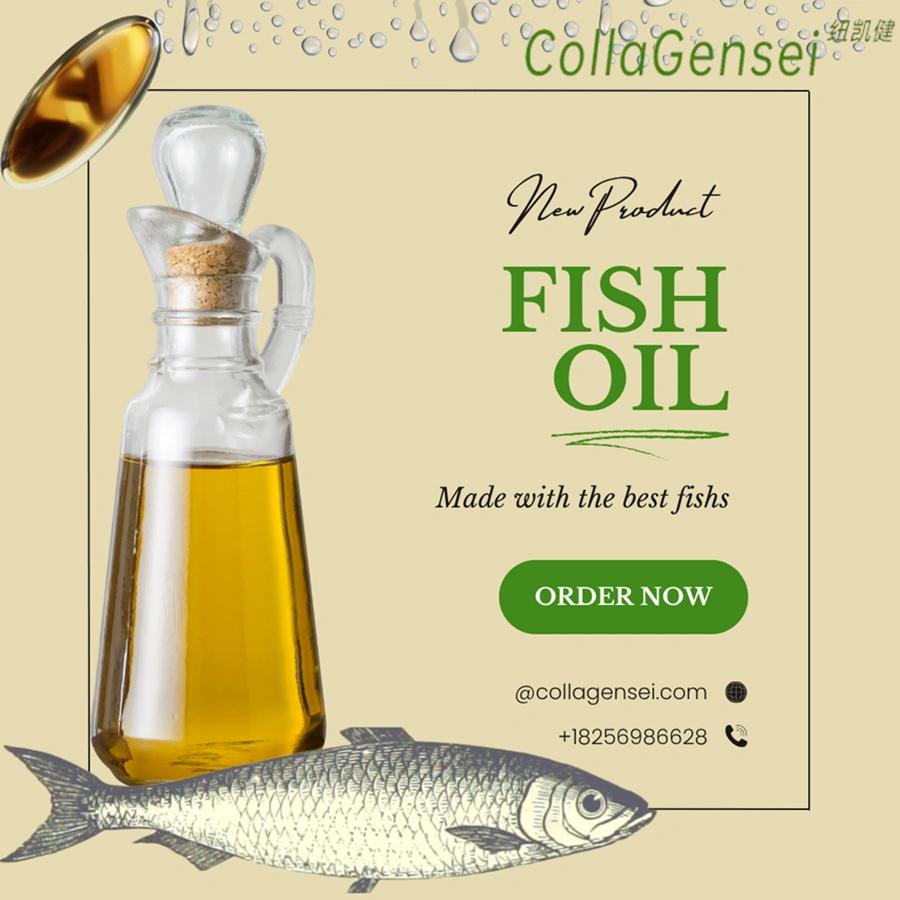Imagine standing in the supplement aisle, staring at rows of fish oil capsules and cod liver oil bottles, wondering which one deserves a spot in your daily routine. It’s like choosing between two trusty friends—one’s great for your heart and brain, while the other brings extra perks for your bones and immunity. I’ve been there, scratching my head, trying to figure out which is the better pick. In this deep dive into cod fish oil vs fish oil, we’ll explore their differences, benefits, and quirks to help you make the right choice. Let’s get started!

What is Fish Oil?
Fish oil is like the rock star of dietary supplements, loved for its high content of omega-3 fatty acids—EPA (eicosapentaenoic acid) and DHA (docosahexaenoic acid). These healthy fats come from the flesh of fatty fish like salmon, mackerel, sardines, and tuna. The extraction process involves pressing the oil from the fish’s tissues, resulting in a supplement that’s about 30% omega-3s, according to the USDA. Whether you’re popping fish oil capsules or stirring a liquid version into your smoothie, it’s a convenient way to boost your omega-3 intake. I remember my first time trying fish oil—those fishy burps were no joke, but the benefits kept me hooked!
What is Cod Fish Oil?
Cod fish oil, more commonly known as cod liver oil, is a bit like fish oil’s cousin with a few extra tricks up its sleeve. It’s extracted from the livers of Atlantic or Pacific cod, which makes it unique. Beyond omega-3s, cod liver oil is packed with vitamins A and D, nutrients stored naturally in the cod’s liver. A single tablespoon can deliver around 13,600 IU of vitamin A and 34 mcg of vitamin D, per USDA data. Historically, it was a go-to remedy for kids to prevent rickets, a bone disease caused by vitamin D deficiency. It’s like a multivitamin and omega-3 supplement rolled into one!

Key Differences Between Cod Fish Oil and Fish Oil
To make sense of cod fish oil vs fish oil, let’s break down their differences. Think of it as comparing two recipes—both delicious, but with different ingredients and flavors.
Source and Extraction
Fish oil comes from the body of fatty fish, like salmon or sardines, extracted through pressing or centrifugation. Cod fish oil, on the other hand, is sourced from codfish livers, a process that concentrates not just omega-3s but also vitamins A and D. This difference in source is what sets them apart from the get-go.
Nutrient Composition
Here’s where things get interesting. Fish oil is a heavyweight in omega-3s, typically containing 180 mg of EPA and 120 mg of DHA per 1,000 mg serving. Cod fish oil has slightly lower omega-3 levels—about 90 mg EPA and 140 mg DHA per 1,000 mg—but it shines with its vitamin content. A tablespoon of cod liver oil can provide over 100% of your daily vitamin A and D needs, while fish oil has negligible amounts of these vitamins.
| Nutrient | Fish Oil (per 1,000 mg) | Cod Liver Oil (per 1,000 mg) |
|---|---|---|
| EPA | 180 mg | 90 mg |
| DHA | 120 mg | 140 mg |
| Vitamin A | Minimal | 13,600 IU |
| Vitamin D | Minimal | 34 mcg |
Source: USDA Nutrient Database
Health Benefits
Fish oil is your go-to for heart and brain health, thanks to its high omega-3 content. Cod fish oil offers similar benefits but adds bone health, immune support, and skin health due to its vitamins A and D. It’s like choosing between a smoothie packed with protein or one with added vitamins—both are great, but they serve slightly different purposes.
Side Effects
Both supplements have potential downsides. Fish oil side effects include fishy burps, nausea, or diarrhea, especially if you take it on an empty stomach. Cod fish oil carries a unique risk: too much vitamin A can lead to toxicity, causing symptoms like dizziness or nausea. Pregnant women should avoid cod liver oil due to this risk, as high vitamin A levels can harm fetal development.
Dosage and Usage
Fish oil is often taken in higher doses to maximize omega-3 benefits, with a typical recommendation of 250–500 mg of combined EPA and DHA daily for adults. Cod fish oil is usually taken in smaller doses due to its vitamin content—1–2 teaspoons daily is common. Always check labels for exact amounts and consult a doctor to avoid overdoing it.
Exploring Fish Oil Benefits
Fish oil is like a trusty sidekick for your health, offering a range of benefits backed by science. Here’s why it’s so popular:
- Heart Health: Omega-3s can lower triglycerides, reduce blood pressure, and decrease heart disease risk. A 2012 study in Diabetes Care found that fish oil supplements reduced triglyceride levels in people with diabetes, though they didn’t lower heart attack risk (https://pubmed.ncbi.nlm.nih.gov/22686415/).
- Brain Function: DHA is a key component of brain tissue, supporting memory and focus. Research suggests omega-3s may reduce the risk of Alzheimer’s and dementia.
- Anti-Inflammatory Power: Omega-3s help tame inflammation, which is great for conditions like arthritis or autoimmune diseases.
- Mental Health: A 2019 meta-analysis found that omega-3s may improve depression symptoms, though results are mixed (https://www.nccih.nih.gov/health/omega3-supplements-in-depth).
- Pregnancy Support: Omega-3s are vital for fetal brain and eye development, with the American Pregnancy Association recommending at least 300 mg of DHA daily.
I started taking a fish oil supplement after noticing my energy and focus weren’t what they used to be. It wasn’t a miracle cure, but I swear my brain feels sharper on days I don’t skip my dose!
Cod Fish Oil Benefits: What Makes It Special?
Cod fish oil brings all the omega-3 goodness of fish oil but with a few extra perks, thanks to its vitamin content:
- Heart Health: Like fish oil, it supports heart health through omega-3s. A 2014 study linked cod liver oil to a lower risk of heart-related conditions (https://www.ncbi.nlm.nih.gov/pmc/articles/PMC4210919/).
- Bone Health: Vitamins A and D help with calcium absorption, reducing the risk of osteoporosis. My grandmother swore by cod liver oil for her joints, and she was hiking well into her 80s!
- Immune Support: Vitamin A strengthens your immune system, helping you fight off infections.
- Skin Health: Vitamin D supports skin health, potentially easing conditions like psoriasis or eczema.
- Eye Health: The combo of omega-3s and vitamin A may reduce the risk of age-related macular degeneration, per a 2011 study (https://www.ncbi.nlm.nih.gov/pmc/articles/PMC3340802/).
Understanding Fish Oil Side Effects and Cod Fish Oil Risks
No supplement is perfect, and both have their quirks. Here’s what to watch out for:
Fish Oil Side Effects
- Digestive Issues: Nausea, bloating, or diarrhea can happen, especially if you take it without food. I learned this the hard way after a few queasy mornings!
- Fishy Aftertaste: Those infamous fishy BURPS are real. Opt for enteric-coated fish oil capsules to minimize this.
- Blood Thinning: High doses can increase bleeding risk, especially if you’re on blood thinners.
- Drug Interactions: Fish oil may interact with medications like contraceptives or blood pressure drugs.
Cod Fish Oil Risks
- Vitamin A Toxicity: Too much vitamin A (over 3,000 mcg daily) can cause dizziness, nausea, or even liver damage.
- Pregnancy Concerns: High vitamin A levels make cod liver oil unsafe for pregnant women.
- Contamination: Since it comes from the liver, there’s a risk of toxins like mercury, though high-quality products are purified to minimize this.
- Blood Thinning: Like fish oil, it can interact with blood-thinning medications.
| Aspect | Fish Oil Risks | Cod Fish Oil Risks |
|---|---|---|
| Digestive | Nausea, diarrhea, fishy burps | Nausea, heartburn |
| Toxicity | Minimal | Vitamin A/D toxicity |
| Pregnancy | Generally safe | Not recommended |
| Contamination | Low with quality products | Higher risk due to liver source |
Source: Healthline (https://www.healthline.com/health/cod-liver-oil-vs-fish-oil)
How to Choose the Right Fish Oil Supplement
So, how do you decide between fish oil and cod fish oil? It’s like picking the perfect playlist—depends on your mood and goals:
- Focus on Omega-3s? Choose fish oil for its higher EPA and DHA content, ideal for heart, brain, and inflammation support.
- Need Vitamins A and D? Go for cod fish oil if you’re looking to boost bone health, immunity, or skin health.
- Pregnant or Breastfeeding? Stick with fish oil and consult your doctor, as cod liver oil’s vitamin A can be risky.
- Sensitive Stomach? Start with low doses of either and take with meals to reduce fish oil side effects.
Quality matters! Look for dietary supplement ingredients that are third-party tested (e.g., IFOS or CRN certified) to ensure purity and potency. Some brands offer OEM solutions, specialty ingredients tailored for better absorption or specific health needs, like high-potency omega-3s or added antioxidants to prevent rancidity. Check labels for EPA/DHA amounts and avoid products with vague ingredient lists.
Incorporating Fish Oil and Cod Fish Oil into Your Diet
Supplements are great, but food is the gold standard for nutrients. Here’s how to get those omega-3s naturally:
- Fatty Fish: Aim for 2–3 servings of salmon, mackerel, or sardines weekly. I love grilling salmon with lemon and herbs—it’s delicious and packed with omega-3s!
- Cod Fish: Eating cod won’t give you as much vitamin D as cod liver oil, but it’s a great source of omega-3s.
- Plant-Based Options: If you’re vegan, try flaxseeds, chia seeds, or walnuts for ALA (a type of omega-3). Algal oil is another great plant-based DHA source.
When taking a fish oil supplement, take it with a fatty meal for better absorption. Store it in a cool, dark place to prevent rancidity. For cod fish oil, stick to recommended doses to avoid vitamin overload.
Conclusion: Cod Fish Oil vs Fish Oil—Your Choice, Your Health

In the battle of cod fish oil vs fish oil, there’s no clear winner—it all comes down to your health goals. Fish oil is your go-to for pure omega-3 power, perfect for heart and brain health. Cod fish oil, with its added vitamins A and D, is a multitasker for bones, immunity, and skin. Both are fantastic additions to a healthy lifestyle, but quality is key. Choose products with transparent dietary supplement ingredients and consider OEM solutions, specialty ingredients for tailored benefits. Consult your doctor, especially if you’re pregnant or on medications, and start reaping the rewards of these omega-3 powerhouses. Here’s to a healthier you!
FAQs
Which is better, cod or fish oil?
t depends on your needs! Fish oil is better for high omega-3 doses (EPA/DHA) to support heart and brain health. Cod fish oil (cod liver oil) adds vitamins A and D, great for bones, immunity, and skin. Choose fish oil for pure omega-3s, cod liver oil for extra vitamins. Consult your doctor to decide.
Why is fish oil more expensive than cod liver oil?
Higher omega-3 concentration: Fish oil often has more EPA/DHA (e.g., 300 mg vs. 230 mg per 1,000 mg cod liver oil).
Sourcing costs: Fatty fish like salmon are costlier than cod livers.
Processing: High-quality fish oil undergoes rigorous purification to remove toxins, increasing costs. However, prices vary by brand and purity. Check labels for omega-3 content to compare value.
Can I replace fish oil with cod liver oil?
Yes, but not always 1:1. Cod liver oil has less omega-3s but adds vitamins A and D. If you need high omega-3s, stick with fish oil or adjust cod liver oil dosage carefully to avoid vitamin toxicity.
Do cardiologists recommend fish oil?
Some do, especially for high triglycerides or heart health, but evidence is mixed. The American Heart Association suggests 1–2 fish servings weekly over supplements unless prescribed. Consult your cardiologist.
How many 1000mg fish oil pills should I take a day?
Typically 1–3 pills (1000–3000 mg) daily, providing 300–900 mg EPA/DHA. Check labels for EPA/DHA content and consult a doctor for personalized dosing.
Is vitamin D better than fish oil?
Not better, just different. Vitamin D supports bones and immunity; fish oil provides omega-3s for heart and inflammation. Cod liver oil offers both. Choose based on your deficiency or goals.
